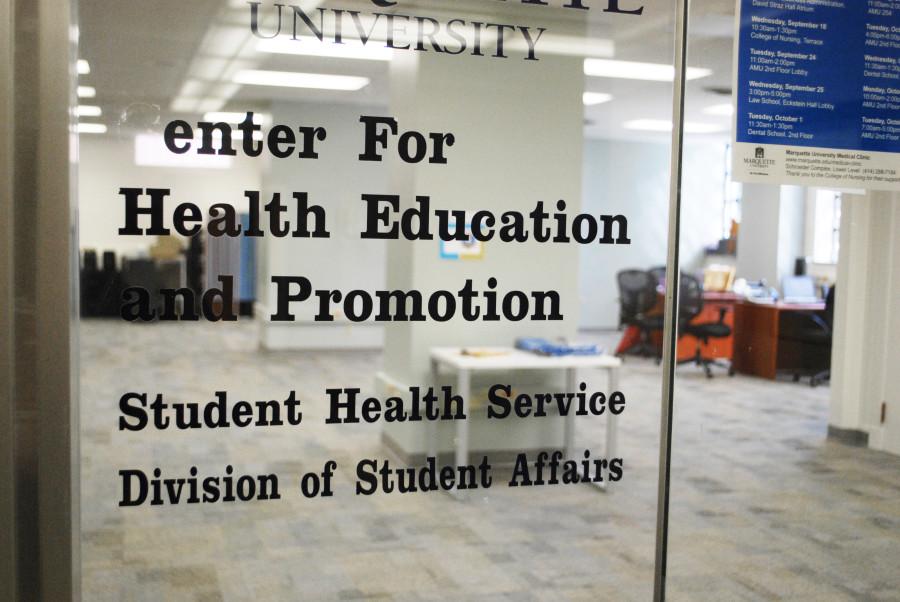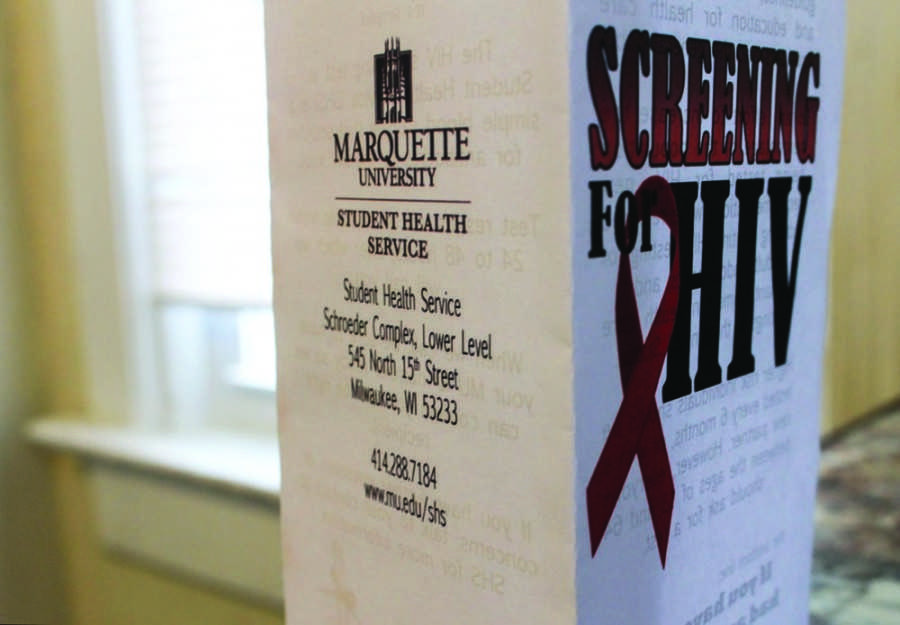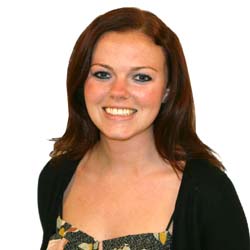
Since 1983, 10,765 cases of HIV have been reported in Wisconsin, according to the Wisconsin Department of Health Services’ 2010 AIDS/HIV Surveillance Report. In 2009, 443 new cases of HIV were reported in Wisconsin.
In 1983, a positive HIV diagnosis was a death sentence.
Today, that is not the case. Individuals who test positive for the human immunodeficiency virus are living with HIV, not dying from it.
Someone who walks into the AIDS Resource Center of Wisconsin for an HIV test can have results in as little as 20 minutes. If the results are positive, steps to combat the uncertainty and fear that can accompany the diagnosis are an elevator ride away.
While many advances have arisen since HIV first occurred in the 1980s, life with HIV is never easy.
Many people with HIV are of low socioeconomic status and face the challenges of homelessness, hunger and poverty.
The AIDS Resource Center of Wisconsin, headquartered in Milwaukee with eight locations elsewhere, is the predominant resource for people living with HIV in Wisconsin. The ARCW is the largest healthcare provider for Wisconsinites with HIV.
Christina Colon is the associate director for Prevention Services at the ARCW.
“Before, there were so many unknown variables,” Colon said. “The response is no longer, ‘Oh my God, how soon am I going to die?’ or ‘When am I going to die?’ It’s more, ‘Okay, now what do I need to do to live through this?’”
Treating HIV in Wisconsin
Though treatments for HIV have become significantly more effective and advanced since the virus was first discovered in the ’80s, it is still an incredibly complex disease to manage, said Bill Keeton, director of communications and government relations for the ARCW.
“For a lot of people who might be diagnosed today, there might not be a lot of other things going right in their life,” Keeton said. “(They) might be trading sex for shelter, or sex for food or sex for money. They’re not doing that because they want to engage in that behavior, they’re doing it because that’s what they need to survive.”
The ARCW offers a wide range of services, from legal assistance to housing to mental health resources for people and families living with HIV.
“What we know is that the disease treatment won’t be successful unless you are basically treating the whole person,” Keeton said.
Included in these services is a food pantry, dental clinic, counseling and legal services and a health clinic. All of these services are offered in the same building and integrated with one another to allow comprehensive treatment.
Keeton said what is missing from the dialogue about HIV today is the importance of an early diagnosis and the complexity of treatment. The ARCW works to encourage people who might be engaging in risky behaviors to get tested often. They also work with people to encourage their friends, who may also be engaging in such behaviors, to get tested as well.
“The diagnosis has to be early for the disease treatment to be most effective,” Keeton said. “If people are waiting until they are very, very sick to come and get tested and treated, the prospects for treatment aren’t as good as they are if you’re an individual in a risky behavior, but you get tested every six months.”
After being diagnosed, many people with HIV can’t immediately start a medical regimen, said Thomas Novak, director of quality assurance at the ARCW. The medication is so strict that people need to make sure they are in a position in their lives where they are able to take a pill every day. The virus can easily develop a resistance to medication if daily doses are not administered.
Because many of their clients do not lead stable lifestyles, the ARCW tries to help them achieve healthy, steady lives so they can begin treatment.
Prevention services at the ARCW
A main goal of the ARCW is prevention. According to both Keeton and Colon, these kinds of services are targeted toward people most at risk for contracting HIV, namely injection drug users and men who have sex with men, especially in the younger generation.
The ARCW operates a one-for-one clean needle exchange, where it reaches out to the community and exchanges used needles for clean ones. Last year, it exchanged more than 75,000 needles, Keeton said.
Colon and Keeton both said since the program began in 1994, there has been a 67 percent reduction in the amount of HIV cases linked to injection drug use in Wisconsin.
Needle exchange programs are controversial because they are sometimes seen as a short-term fix for drug addiction and they might send an approving or inconsistent message about illegal drug use and the zero tolerance policy of the War on Drugs.
Keeton stressed this is not a program that encourages the use of injection drugs. Though the ARCW works with law enforcement officials, it is a completely privately funded program.
“We really work hard to make sure we’re not just (saying to) someone, ‘Here’s a pack of needles, good luck,’” Keeton said.
“The goal of the program is to keep dirty, potentially infected needles off the streets,” Keeton said.
He said the ARCW works with public health officials and law enforcement before introducing the needle exchange program into a community, so the ARCW has their support.
Living with HIV and its stigmas
Even with the many advances and excellent programs available today, living with HIV is both mentally and physically draining.
Keeton said the advancements in treatments and life expectancy for a person living with HIV may lead some toward a false sense of complacency.
“HIV is still out there,” he said. “It’s still a disease that demands our attention and our respect … it needs to stay at the forefront of our discussion.”
Christine Pryal, a junior in the College of Health Sciences and ARCW volunteer, said friends and family members questioned her when she began to work with HIV positive clients.
“There’s such a bad social stigma about it, and these people are trying to live their lives as well as they can,” Pryal said. “It’s upsetting to see how people put a stigma to stay away from people with HIV.”
Through its programs, the ARCW attempts to treat not only the immune system disease, but the whole person. Physical health cannot reach its height without mental health.
On the wall of the medical clinic at the ARCW, alongside photographs and stories of people living and thriving with HIV, is the quote, “Those who have health have hope, those who have hope have everything.”
“It’s really about providing and instilling hope for the future, making sure those folks realize that HIV disease is not something anyone wants, but if you have it, you can live a long and healthy life,” Keeton said.
Colon said that the people she sees on a daily basis are full of hope.
“With that hope, you see them fighting everyday,” she said. “Fighting to get up, to come here even if they’re not having a good day … ‘I’m not feeling so great, but I’m blessed,’ they often say. ‘Today, I’m blessed.’”
Click here for a virtual tour of the AIDS Resource Center of Wisconsin







